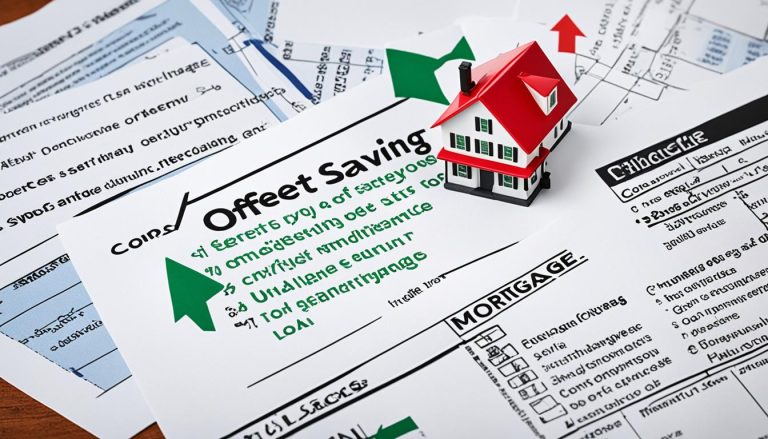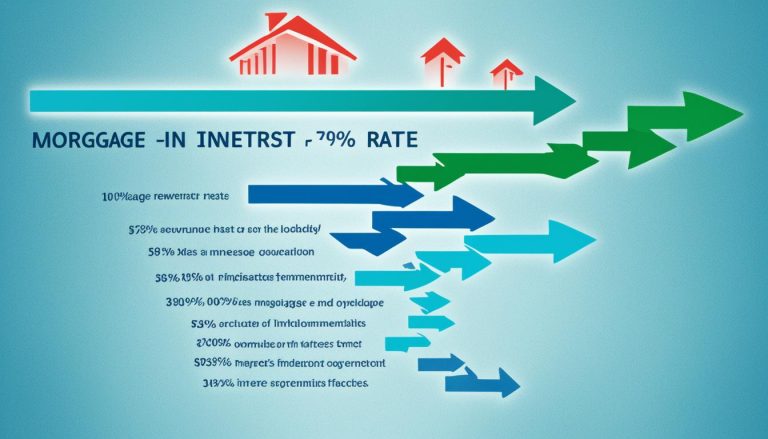Are you dreaming of owning your own home but struggling to save for a deposit? A 100 percent mortgage could be the solution you’ve been looking for. This comprehensive guide will provide you with all the information you need to understand the ins and outs of 100 percent mortgages.
Unlike traditional mortgages that require a minimum deposit of 5 percent, a 100 percent mortgage allows you to borrow the entire cost of a property without the need for a deposit. That’s right, you can secure a full mortgage that covers the purchase price of your dream home!
While 100 percent mortgages have become less common in recent years, there are still options available for those who are unable to save for a deposit. These mortgages provide an affordable home financing solution for first-time buyers and individuals looking to purchase a property without a deposit.
So, how do 100 percent mortgages work? And what are the requirements to qualify for one? In the next sections, we will delve into the details and answer these questions for you. Stay tuned!
What is a 100 Percent Mortgage?
A 100% mortgage allows borrowers to borrow the entire cost of a property without the need for a deposit. It covers the full purchase price of the property, providing an affordable home financing option.
How Does a 100 Percent Mortgage Work?
A 100% mortgage offers borrowers the opportunity to secure a loan for the entire value of a property without the need for a deposit. This means that the borrower can purchase a property without having to save up for a deposit, making it an attractive option for those who may not have substantial savings.
With a 100% mortgage, the lender covers the full purchase price of the property, allowing the borrower to become a homeowner without the upfront cost of a deposit. However, it’s important to note that there are still additional fees and costs involved in the process. These may include solicitor fees, searches, surveyors, moving costs, and potentially a mortgage valuation fee.
One key factor in the approval process for 100% mortgages is the loan to value (LTV) ratio. Lenders assess the borrower’s income and spending habits to determine their ability to repay a mortgage. The LTV ratio is calculated by dividing the loan amount by the property’s value and is used to assess the risk associated with the loan.
| Costs and Fees | Description |
|---|---|
| Solicitor fees | The legal fees associated with the purchase of the property. |
| Searches | The cost of conducting searches on the property to uncover any potential issues or restrictions. |
| Surveyors | The fee for a professional surveyor to assess the condition and value of the property. |
| Moving costs | The expenses associated with moving belongings from the old property to the new one. |
| Mortgage valuation fee | A fee charged by the lender to assess the value of the property. |
While a 100% mortgage eliminates the need for a deposit, potential borrowers should consider the additional costs involved and ensure they have the financial means to cover these expenses. It’s also important to thoroughly research and compare different lenders and mortgage products to find the best options for their individual circumstances.
Are there any Requirements for 100% Mortgages?
When considering a 100 percent mortgage, it’s important to be aware of the potential requirements that lenders may have. While each lender may have their own set of qualifications, there are a few common factors to consider.
- Guarantor: In some cases, lenders may require a guarantor for a 100 percent mortgage. A guarantor is an individual who agrees to make mortgage payments if the borrower defaults. Lenders typically conduct affordability checks on the guarantor to ensure they have the financial capability to cover the mortgage payments.
- Qualifications: Even if a guarantor is not required, lenders may have other conditions for borrowers to qualify for a 100 percent mortgage. These qualifications may include having a history of timely rent and bill payments or demonstrating financial responsibility through steady income and savings.
- “Family deposit”: Some lenders offer alternative options such as a “family deposit” where a portion of the property’s price is held in a savings account as a guarantee. This account acts as security for the lender, reducing the risk associated with a 100 percent mortgage.
It’s worth noting that affordability checks are an essential part of the mortgage approval process. Lenders need to assess whether borrowers have a stable income to make mortgage payments comfortably without compromising their financial stability.
Working with a mortgage broker can help borrowers navigate the specific requirements of different lenders and find suitable mortgage options. Brokers have in-depth knowledge of the mortgage market and can offer tailored advice to help borrowers meet the necessary criteria for a 100 percent mortgage.
Remember, the specific requirements for 100 percent mortgages may vary between lenders, so it’s essential to consult with a professional to understand the qualifications and make an informed decision.

Pros and Cons of 100% Mortgages
When considering a 100 percent mortgage, it’s important to weigh the advantages and disadvantages to make an informed decision. While these mortgages offer several benefits, they also come with certain drawbacks to consider.
Pros of 100% Mortgages
- Entry to the Property Market: 100 percent mortgages allow borrowers to enter the property market without the need for a deposit. This provides an opportunity for individuals who are unable to save for a deposit to become homeowners and start building equity in their home.
- Lower Monthly Payments: Borrowers may find that their monthly mortgage payments on a 100 percent mortgage are lower than their rent. This can provide greater affordability and make homeownership more accessible.
Cons of 100% Mortgages
- Negative Equity: One major risk of a 100 percent mortgage is the potential for negative equity. Negative equity occurs when the value of the property falls below the amount owed on the mortgage. This can make it challenging to sell the property or remortgage.
- Higher Interest Rates: Interest rates on 100 percent mortgages are typically higher compared to mortgages with a lower loan-to-value ratio. This means that borrowers may end up paying more in interest over the life of the mortgage.
- Limited Options: It’s important to note that there are fewer options available for 100 percent mortgages compared to more standard mortgages with lower loan-to-value ratios. This limited availability may make it more challenging to find a suitable mortgage that meets specific needs or preferences.
Considering the pros and cons of a 100 percent mortgage is crucial in making an informed decision. While these mortgages offer an opportunity to enter the property market without a deposit and potentially lower monthly payments, borrowers must also assess the risks associated with negative equity, higher interest rates, and limited options. It’s essential to carefully evaluate personal circumstances and financial goals before committing to a 100 percent mortgage.

Conclusion
A 100 percent mortgage can be a valuable option for individuals who are unable to save for a deposit. It offers an opportunity to enter the property market and start building equity in a home without the need for an upfront payment. However, it’s crucial to carefully consider the potential risks associated with this type of mortgage.
One of the major risks is negative equity, where the property’s value falls below the amount owed on the mortgage. This can pose challenges when it comes to selling or remortgaging the property. Additionally, 100 percent mortgages often come with higher interest rates compared to mortgages with a lower loan-to-value ratio.
Before deciding on a 100 percent mortgage, it’s important to weigh the benefits and drawbacks. Exploring alternatives, such as guarantor mortgages or saving for a deposit, can broaden the choices and help find the most suitable financing solution for individual circumstances. It’s essential to assess one’s financial situation and consult with mortgage brokers to make an informed decision.






